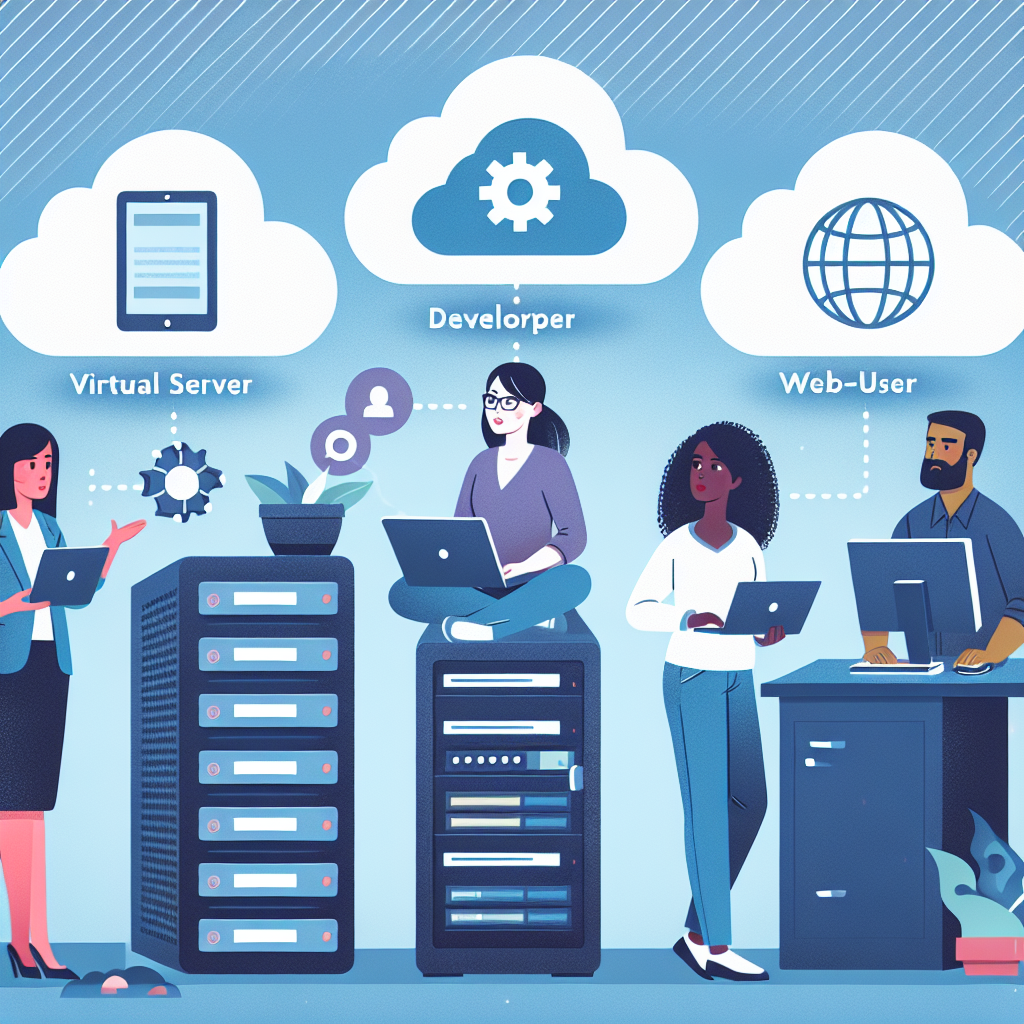Comprehensive Guide to Cloud Services: Understanding Types, Uses, and Costs

What Does Cloud Service Mean? Unlocking the Digital Future for Your Business

Have you ever wondered, what does cloud service mean? ⭐ In today’s digital landscape, it’s a term that’s becoming almost as common as “internet.” But let’s break it down to its core. A cloud service allows you to access your data and applications over the internet instead of relying solely on local servers or hard drives. Imagine a virtual warehouse where you store your most important files, and you can access them from anywhere – be it your office, home, or even while you’re on vacation. ⭐
In essence, cloud services are all about flexibility and convenience. But it’s not just about personal files. Businesses today are leveraging these services to streamline operations, improve collaboration, and enhance productivity.
Understanding Cloud Services Through Real-Life Scenarios
Let’s imagine two different business scenarios:
- Scenario 1: Sarah runs a small marketing agency. Before switching to cloud services, her whole team struggled to access necessary files while working remotely. They often faced delays because they had to send files back and forth via email. After transitioning to a cloud service like Google Drive, now everyone on her team can access the most recent versions of documents at any time. This means quicker decision-making and a significant boost in productivity.
- Scenario 2: John is the IT manager of a local grocery store. He used to spend countless hours managing on-site servers, dealing with hardware failures and data losses. After implementing a cloud service like AWS, John no longer has to worry about physical server maintenance or data recovery. The flexibility to scale up storage when needed has allowed him to focus more on strategic planning rather than mundane IT tasks.
These examples illustrate just how transformative a cloud service can be for your business operations.✨
Why Choose Cloud Services? Exploring the Advantages
Here are a few key benefits that demonstrate the power of cloud services:
- Cost-Effectiveness: You only pay for what you use, allowing savings on hardware upgrades and maintenance.
- Scalability: Easily adjust your resources based on your business needs. Whether you are expanding or downsizing, cloud services can adapt quickly!
- Accessibility: Work from anywhere with an internet connection. This flexibility caters to today’s workforce that values remote work options.
- Enhanced Collaboration: Teams can work on documents simultaneously and see changes in real-time, improving teamwork and efficiency.
- Security: Many cloud service providers invest heavily in security measures, including data encryption and access control, making your data safer than you might expect.
Did you know that more than 80% of companies are expected to adopt a cloud-first approach by 2025? ⭐
So, What Are the Types of Cloud Services? A Quick Overview
| Type of Cloud Service | Description |
|---|---|
| Infrastructure as a Service (IaaS) | Provides virtualized computing resources over the internet. |
| Platform as a Service (PaaS) | Allows developers to build, test, and manage applications without dealing with infrastructure. |
| Software as a Service (SaaS) | Offers software applications over the internet on a subscription basis. |
| Function as a Service (FaaS) | Facilitates building applications by allowing you to execute code in response to events without the complexity of managing servers. |
| Backup Services | Provides data storage solutions to ensure your data is backed up in the cloud. |
| Disaster Recovery as a Service (DRaaS) | Offers backup services that ensure continuity of operation after a disaster. |
| Platform Security Services | Secures cloud operations by safeguarding your applications and data. |
| Storage Solutions | Ensures that you have enough secure storage to manage your data effectively. |
| Managed Cloud Services | Providers offer infrastructure, platform, and application management in a bundled service. |
| Hybrid Cloud Services | A combination of public and private clouds to meet varied needs. |
Questions about the costs? Typically, what is the cost of renting a cloud service varies based on the features you need, the amount of storage you require, and the pricing model of the provider. At zenvello.com, our rates are designed to fit businesses of all sizes, and we provide transparent pricing to help you make informed decisions!
Let Us Help You Transition to the Cloud
Thinking of leveraging the power of cloud services? With over 20 years of experience and a team of professional specialists, zenvello.com offers a full spectrum of services, from tailored cloud solutions to ongoing technical support. There’s no need to juggle multiple companies for your IT needs; we’re your all-in-one partner. ⭐
Ready to unlock your businesss potential? Give us a call today at [email protected] or visit our website zenvello.com to learn more and get started! ⭐ Our customer relations manager, Arsenii, is here to help you every step of the way!
What Is Cloud in the Internet in Simple Words? Demystifying the Concept for Everyone

Have you heard the word "cloud" being tossed around in conversations about technology and wondered, what is cloud in the internet in simple words? ⭐️ Well, youre in the right place! At its most basic level, the cloud refers to a network of servers connected via the internet that store and manage data. Think of it as a virtual space where your information takes up residence, instead of sitting physically on your computer.
Breaking It Down: How Does the Cloud Work?
Picture this: You have a large storage closet at home (your computer) thats overflowing with files. It’s hard to access what you need quickly every time youre in a rush. Now imagine a neat, organized storage unit (the cloud) just a few clicks away that you can access from anywhere – at work, on your phone, or by your laptop at a café. That’s essentially what the cloud does for your data!
When you store files in the cloud, they’re uploaded to secure servers owned by companies like Google, Microsoft, or Amazon. From there, they can be accessed anytime, anywhere, as long as you’re connected to the internet. These cloud service providers also ensure that your data is safeguarded with extensive security measures. ⭐
Everyday Examples of Cloud Use
Let’s look at some everyday applications of cloud technology that might resonate with you:
- Google Drive: Want to share a document with a colleague? Instead of emailing it, you upload it to Google Drive and share the link. This way, both of you can edit the file together in real time, regardless of where you are.
- Netflix: Ever wonder how you can watch movies anytime without downloading them? Netflix streams content from the cloud, allowing you to binge-watch your favorite series without taking up space on your device.
- Online Backups: Services like Dropbox or iCloud back up your photos and files automatically. If you lose your phone or accidentally delete a file, you can quickly restore it from the cloud. ⭐⭐
Why Should We Care About the Cloud?
Now that we’ve demystified the concept, let’s talk about why understanding the cloud is essential for everyone:
- Accessibility: Cloud technology enables access to your important documents from any device, anywhere, at any time. No more jumping from computer to computer!
- Maintenance-Free: Forget about manually backing up your files or worrying about hardware failures. Cloud services take care of these details, so you can concentrate on what matters most.
- Scalability: As your business or personal storage needs grow, you can easily increase your cloud storage without needing to invest in new hardware.
- Collaborative Features: Want to work on a project with someone else? The cloud makes it easy with tools that allow simultaneous editing and feedback.
Your Path to Join the Cloud Revolution
Ready to embrace the cloud for your own personal or business use? At zenvello.com, we make it simple for you to get started with various cloud solutions tailored to your needs. ⭐ With our experienced specialists, we can help you navigate this digital landscape and implement the best strategies for your requirements.
If you’re curious about integrating cloud services or have specific questions, don’t hesitate to reach out! Give us a call at [email protected] or visit our website at zenvello.com for more information. Let’s unlock the power of the cloud together! ⭐
What Types of Cloud Services Exist? A Comprehensive Guide to Choosing the Right Solution

When diving into the world of cloud technology, a common question arises—what types of cloud services exist? ☁️ With so many options available, it can be challenging to choose the right solution for your personal or business needs. By breaking these services down into manageable categories, we can clarify which cloud options might fit you best.
1. Infrastructure as a Service (IaaS)
IaaS is a fundamental cloud service that provides virtualized computing resources over the internet. Think of it as renting a virtual data center. Instead of investing in physical hardware, businesses can use IaaS to deploy virtual machines, storage, and networks at a fraction of the cost. Big players like Amazon Web Services (AWS) and Microsoft Azure offer IaaS solutions. Here’s why it might be a great option:
- ⭐ Cost Efficiency: Pay-as-you-go pricing models eliminate the need for heavy upfront investments.
- ⭐ Scalability: Easily adjust resources as your business needs grow without the hassle of managing physical servers.
2. Platform as a Service (PaaS)
PaaS takes it a step further by providing a platform that allows developers to build, deploy, and manage applications without dealing with the underlying infrastructure. This is particularly useful for software developers wanting to focus on creating applications rather than managing servers. Popular examples include Heroku and Google App Engine.
- ⭐ Faster Development: Streamlined processes can speed up application development and improve collaboration within teams.
- ⭐ Built-In Tools: Many PaaS solutions come with integrated development tools, libraries, and APIs to facilitate easier programming.
3. Software as a Service (SaaS)
SaaS is what most people commonly encounter in everyday life. This is when software applications are delivered over the internet on a subscription basis. Instead of installing software on individual devices, users access it through a web browser. Examples include Google Workspace, Salesforce, and Slack.
- ⭐ Accessibility: Users can access SaaS applications from any device connected to the internet.
- ⭐ Automatic Updates: Ensures that all users have the latest version, reducing compatibility issues.
4. Function as a Service (FaaS)
FaaS is a cloud service that enables developers to run code in response to events without having to manage servers. It’s often used for event-driven architectures like API calls or data processing tasks. AWS Lambda is a popular example of FaaS.
- ⭐ Event-Driven: Automatically scale to handle the processing of events with little to no configuration.
- ⭐ Reduced Management: Focus solely on writing code, without worrying about the underlying infrastructure.
5. Backup as a Service (BaaS)
BaaS provides cloud storage solutions specifically for backing up your data securely. This option is perfect for individuals and businesses that require reliable backup solutions. Examples include Backblaze and Acronis.
- ⭐ Data Safety: Regular backups ensure your valuable data is protected from unexpected losses.
- ⭐ Easy Restoration: Incremental backups allow you to restore specific files without hassle.
6. Disaster Recovery as a Service (DRaaS)
DRaaS offers organizations the ability to protect and maintain their IT infrastructure in case of disruptions. This could be due to a natural disaster, cyberattack, or any unforeseen event. Services like Zerto provide robust DRaaS solutions.
- ⚡ Business Continuity: Ensures that in case of an emergency, your operations can be quickly restored to minimize downtime.
- ⚡ Affordable Peace of Mind: Avoid the costly expenses associated with losing data by having a solid disaster recovery plan.
Choosing the Right Cloud Service for You
Deciding which cloud service fits your needs can feel overwhelming, but it becomes easier when you consider your specific requirements. Here are some quick tips to help you choose:
- ⭐ Evaluate Your Needs: Are you looking for data storage, application development, or something more comprehensive?
- ⭐ Consider Your Budget: Look at the pricing models. Pay-per-use options can often save you money in the long run.
- ⭐ Ease of Use: Select a service that is user-friendly and fits seamlessly into your existing workflow.
- ⭐ Scalability: Decide if you might need to scale the service as your requirements grow.
- ⭐ Security Features: Ensure the provider offers robust security measures to protect sensitive data.
With over 20 years of experience, zenvello.com is here to guide you through the myriad of cloud options available. Our team of professional specialists can help you choose the right cloud services tailored to your business or personal needs! If you’re looking to harness the power of the cloud, don’t hesitate to call us at [email protected] or visit our website at zenvello.com. Lets find the perfect cloud solution together! ☁️✨
What Are Cloud Services Used For? Exploring Real-World Applications and Their Cost-Effectiveness

Have you ever wondered, what are cloud services used for? ⭐️ In today’s digital ecosystem, cloud services have become essential tools for businesses and individuals alike. They not only improve efficiency but also significantly reduce costs. Let’s dive into some real-world applications of cloud services and explore their incredible cost-effectiveness!
1. Data Storage and Backup Solutions
One of the most common uses of cloud services is for data storage and backup. Imagine youre a photographer with hundreds of high-resolution images. Instead of keeping them all on your laptop, which can run out of space quickly, you upload them to a cloud service like Google Drive or Dropbox. This way, they’re securely stored and easily accessible from any device. ⭐
- ⭐ Cost Savings: Traditional physical storage solutions require purchasing hardware and managing maintenance. Cloud storage eliminates these costs, allowing you to pay only for the space you use.
- ⭐ Automatic Backups: Cloud services often provide automatic backup options, ensuring your data is safe without daily manual effort.
2. Collaborative Work Environments
Cloud services have revolutionized the way teams collaborate. Tools like Microsoft Teams and Slack enable remote teams to work together in real-time, regardless of where they are physically located. For example, consider a marketing team working on a campaign; by using cloud software to share documents, create presentations, and manage tasks, they can collaborate seamlessly.
- ⭐ Real-Time Updates: Everyone can contribute to a project simultaneously, ensuring that everyone is aligned, and nothing falls through the cracks.
- ⭐ Cost-Effective Communication: Communication tools provided through the cloud reduce costs associated with long-distance calls and travel.
3. Hosting Web Applications and Websites
Cloud services are widely used to host websites and applications, allowing for better performance and scalability. For example, e-commerce sites often experience traffic spikes during the holiday shopping season. Instead of investing in expensive physical servers to handle this, they can use cloud hosting services like AWS or Azure to scale their resources according to demand.
- ⭐ Scalability: Pay for what you need, when you need it, which allows for flexibility in resource management.
- ⭐ Enhanced Performance: Cloud providers ensure robust infrastructure that keeps your website up and running smoothly, even during high traffic times.
4. Software Development and Testing
For development teams, cloud services offer an ideal environment for building and testing applications. Developers can set up environments quickly without the need for physical hardware. Services like GitHub Actions or CircleCI allow for continuous integration and deployment, streamlining the development process.
- ⭐ Faster Development Cycles: Quickly spin up testing and production environments increases efficiency and speeds up development.
- ⭐ Reduced Costs: No need to maintain infrastructure, which minimizes overhead costs associated with traditional development environments.
5. Customer Relationship Management (CRM)
Many businesses leverage cloud-based CRM solutions, such as Salesforce or HubSpot, to manage customer interactions. By storing all customer data in the cloud, businesses can access comprehensive profiles and track their interactions easily.
- ⭐ Data Centralization: All customer data is stored in one place, making it easy to analyze and improve customer relationships.
- ⭐ Cost Efficiency: Traditional CRM implementations require significant upfront investments in software and hardware. Cloud CRM operates on a subscription basis, making it financially viable even for small businesses.
The Cost-Effectiveness of Using Cloud Services
So, how cost-effective are cloud services? Research indicates that organizations using cloud solutions can achieve an average cost reduction of 30% in IT infrastructure expenses. ☀️ This includes savings on hardware depreciation, maintenance costs, and electricity bills. Moreover, the pay-as-you-go model allows businesses to scale according to their needs, meaning you’re not financially tied down to any unneeded resources.
At zenvello.com, we understand that each business has unique needs and challenges. With our extensive experience in cloud solutions, we can help you find the most cost-effective cloud service tailored to your organization’s requirements. If you’re curious about how to leverage cloud services, why not reach out to us? Call us today at [email protected] or visit our website at zenvello.com for more details! Let’s unlock the potential of cloud technology for you! ⭐⭐
Fill out the form below and our team will reach out within one business day
